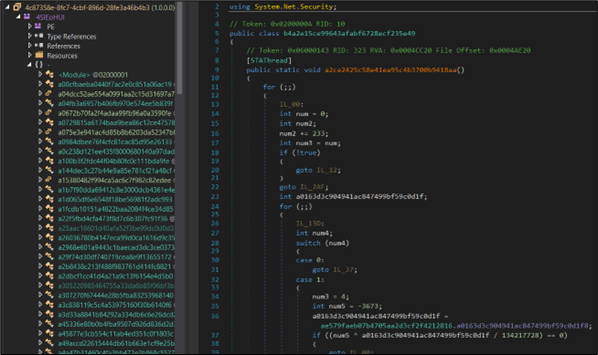 Tomorrow, January 28, is National Data Privacy Day. While that may not mean a lot to you at first glance, the day shines a light on one of the most critical issues facing families today — protecting personal information in a hyper-connected world.
Tomorrow, January 28, is National Data Privacy Day. While that may not mean a lot to you at first glance, the day shines a light on one of the most critical issues facing families today — protecting personal information in a hyper-connected world.
The day gives us an opportunity to 1) honestly examine the many ways our lives are connected and, 2) to take responsibility (and steps) to safeguard each area of personal privacy we expose — or potentially misuse — every time we power up.
Data Channels
Every day we connect our lives to external sources that are useful, productive, and entertaining without even realizing the many ways others can exploit our digital connections. There are the obvious sources that present a risk to our data such as social networks, online shopping, web browsing, and apps. Then there are the not-so-obvious sources that gather our information such as medical offices, schools, financial institutions, retail businesses, household assistants, TVs, home security systems, appliances, toys, and wearables.
Studies show that most of us certainly are not going to give up our connected lives to prevent a data breach. So, the next practical step is to get more intentional about our family’s privacy and take specific actions to minimize our risk.
The Risks Are Real
If you’ve never suffered the consequences of another person or organization exploiting  your personal information, then you may not understand the seriousness of protecting it. However, as we all become more seamlessly connected in an Internet of Things (IoT) world, chances are you will experience some data misuse or abuse in the future. Those acts might be large-scale breaches such as the ones we’ve seen with Equifax, Uber, and Verizon or the breach may be on a smaller scale but just as financially and emotionally damaging.
your personal information, then you may not understand the seriousness of protecting it. However, as we all become more seamlessly connected in an Internet of Things (IoT) world, chances are you will experience some data misuse or abuse in the future. Those acts might be large-scale breaches such as the ones we’ve seen with Equifax, Uber, and Verizon or the breach may be on a smaller scale but just as financially and emotionally damaging.
When personal data gets hacked, sold, or exploited several things can happen. Digital fallout includes identity theft, credit card fraud, medical fraud, home break-ins, data misuse by companies, reputation damage, location and purchasing tracking, ransomware, and much more.
So the technology-driven future we’ve imagined is here — and it’s pretty awesome — but so too are the risks. And who among us could have guessed that parenting in the 21st century would include teaching kids about cybercriminals, data mining, and privacy breaches?
Step-Up Family Privacy

Treat privacy like gold. If more of us saw our personal information the way cybercriminals see it — like gold — then we may be more inclined to lock it up. Guiding your family in this mind-shift requires real effort. Teach your kids to view their personal information — address, habits, personal routine, school name, relationships, passwords, connected devices — as gold. Gold is to be treasured, locked up, and shared with great discernment. This attitude change may take time but, hopefully, the return on investment will mean your kids pause before handing over personal info to an app, a social network, a retail store, or even to friends.
Stress responsibility and respect. Stopping to think before you share online or connect a digital device is a key to safeguarding digital privacy. By teaching your kids that living in a connected world comes with responsibility for one’s actions and respect for others, you a leap in securing our family’s online privacy.
Routinely secure the basics. There are fundamental security measures under our roofs that cybercriminals are counting on all of us to neglect (and many of us do just that). Powerful security steps include: 1) Update all software (PC, phone, tablets, etc.) routinely 2) Establish and maintain strong passwords 3) Secure privacy settings on all social networks 4) Lock down your home network 5) Don’t overshare family details (names, travel, location, address, friends) online.
Make privacy fun. Here’s something to ponder. Challenge your kids to keep a low profile online. Talk about the power of being discreet, private, and mysterious in their digital peer group. Encourage them to set themselves apart by being the one who isn’t so easily accessed. Ask: Is digital sharing an enjoyable thing or, in reality, has it become an exhausting habit? Challenge them to go undercover (dark) online for a week and journal the pros and cons of being hyper private online. Come up with an incentive that works for your family.
Enjoy the Wows
Overall, stop and consider what your digital devices, apps, games, and products are asking of you. Is that fitness tracker getting a little too personal? Does that new toy, home security system, or household assistant know more than your family than your own mother does?Then don’t fill in every blank box. Go into the privacy settings and shore up product access, freshen up your passwords, and make sure you stay on top of software updates. Stop giving retailers, government agencies, and online marketers your email address. In short — pay attention, protect, and cherish your personal data. You can enjoy the wows of your technology without opening up your family’s privacy.

Toni Birdsong is a Family Safety Evangelist to McAfee. You can find her on Twitter @McAfee_Family. (Disclosures).













